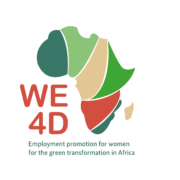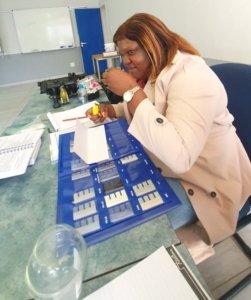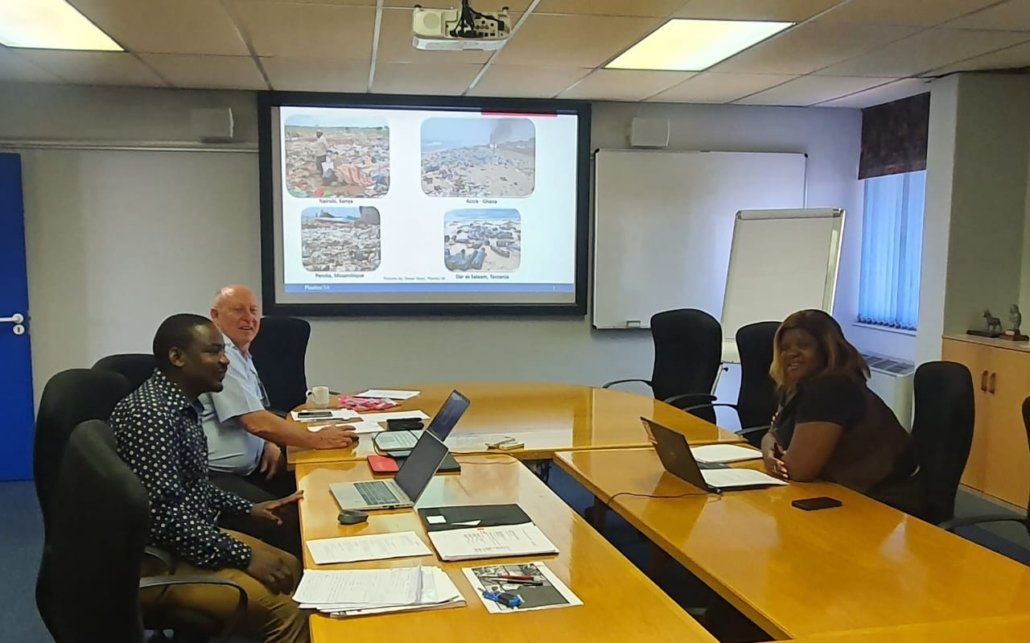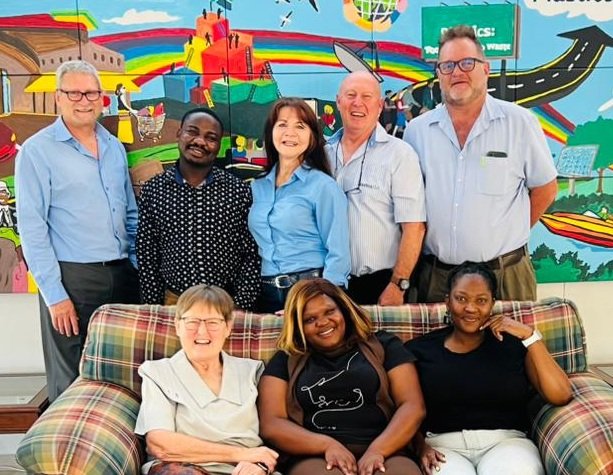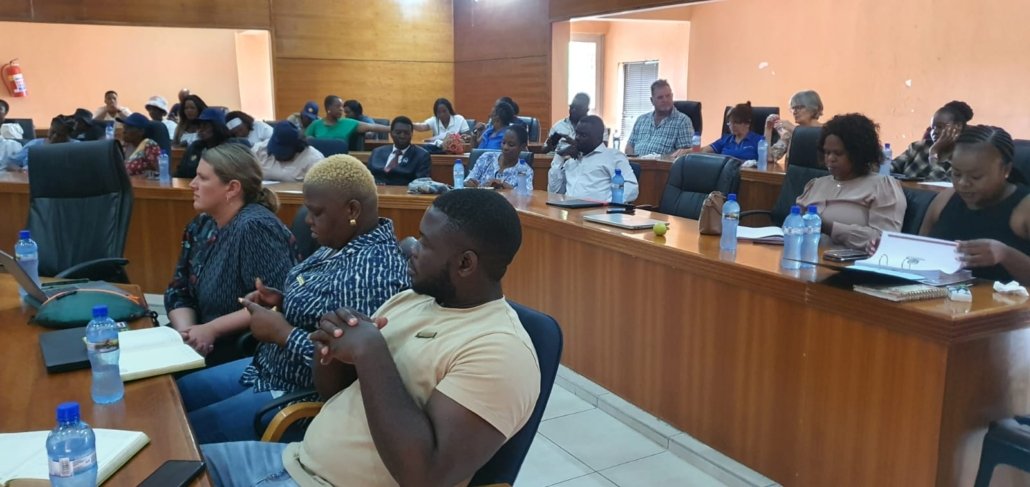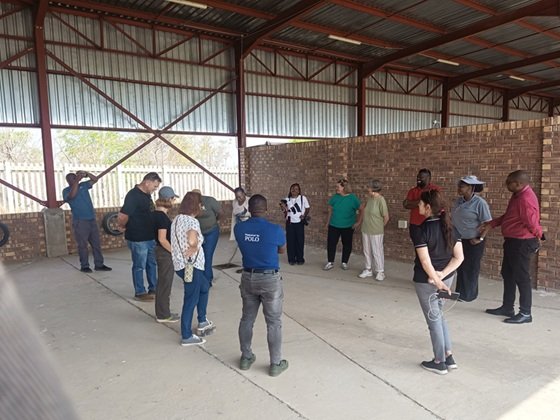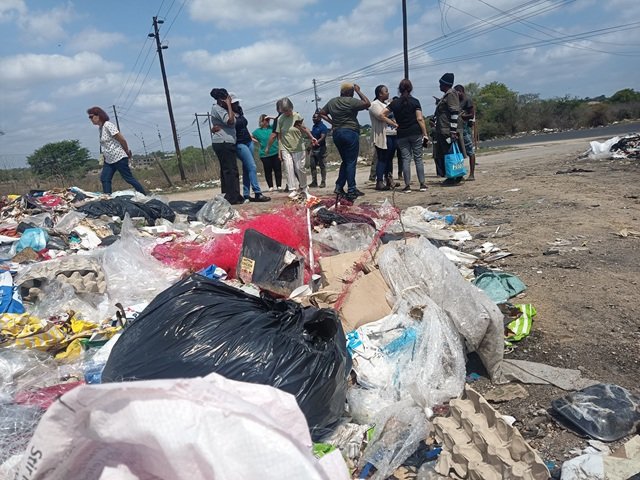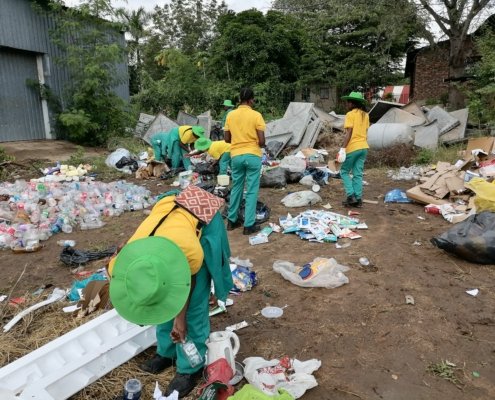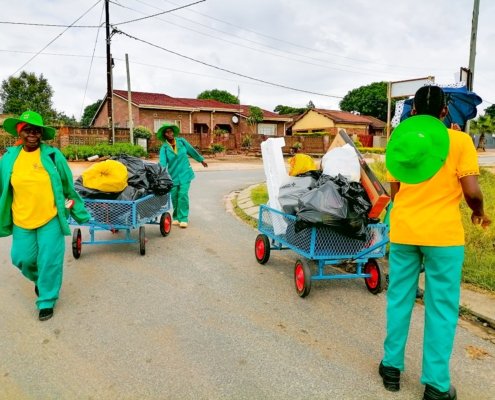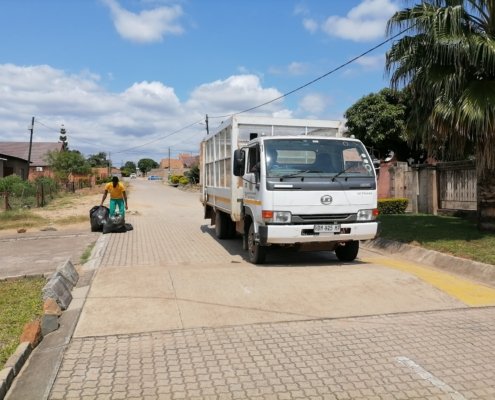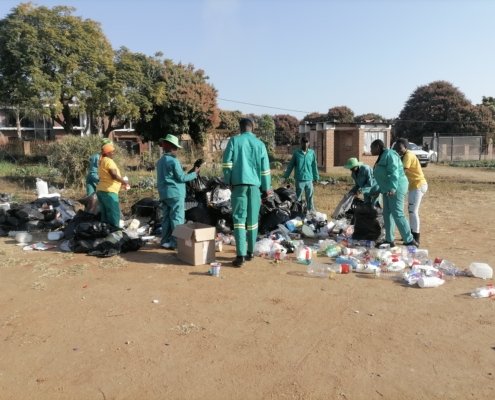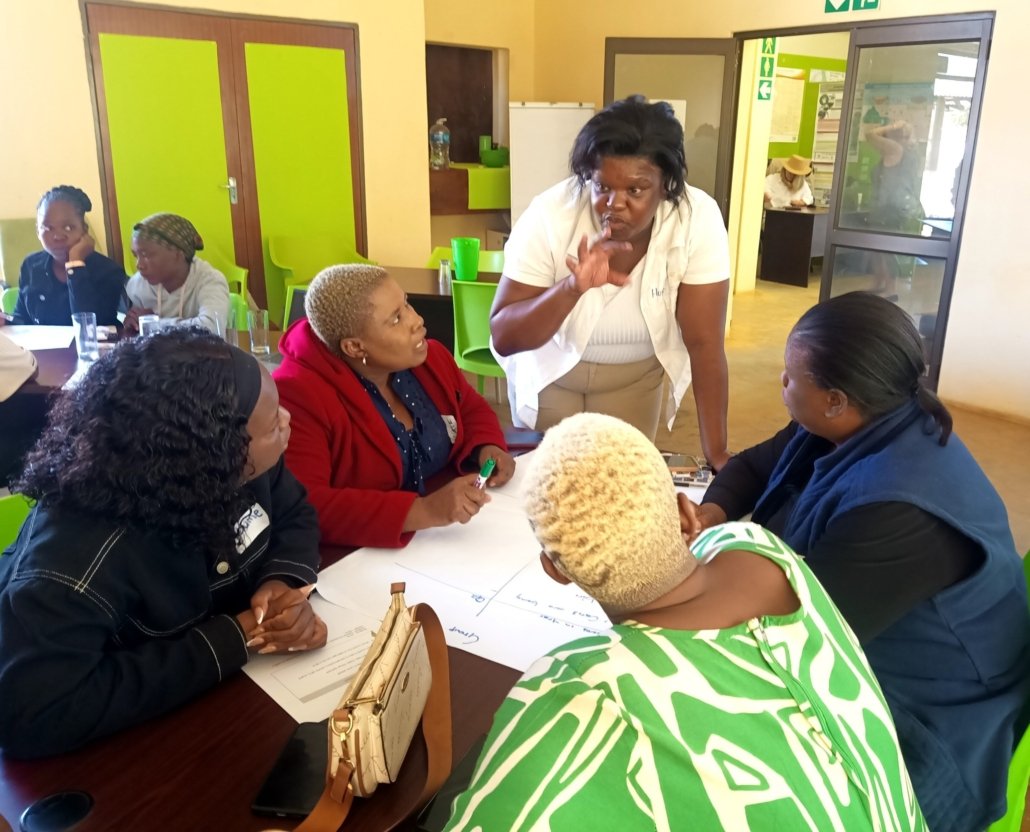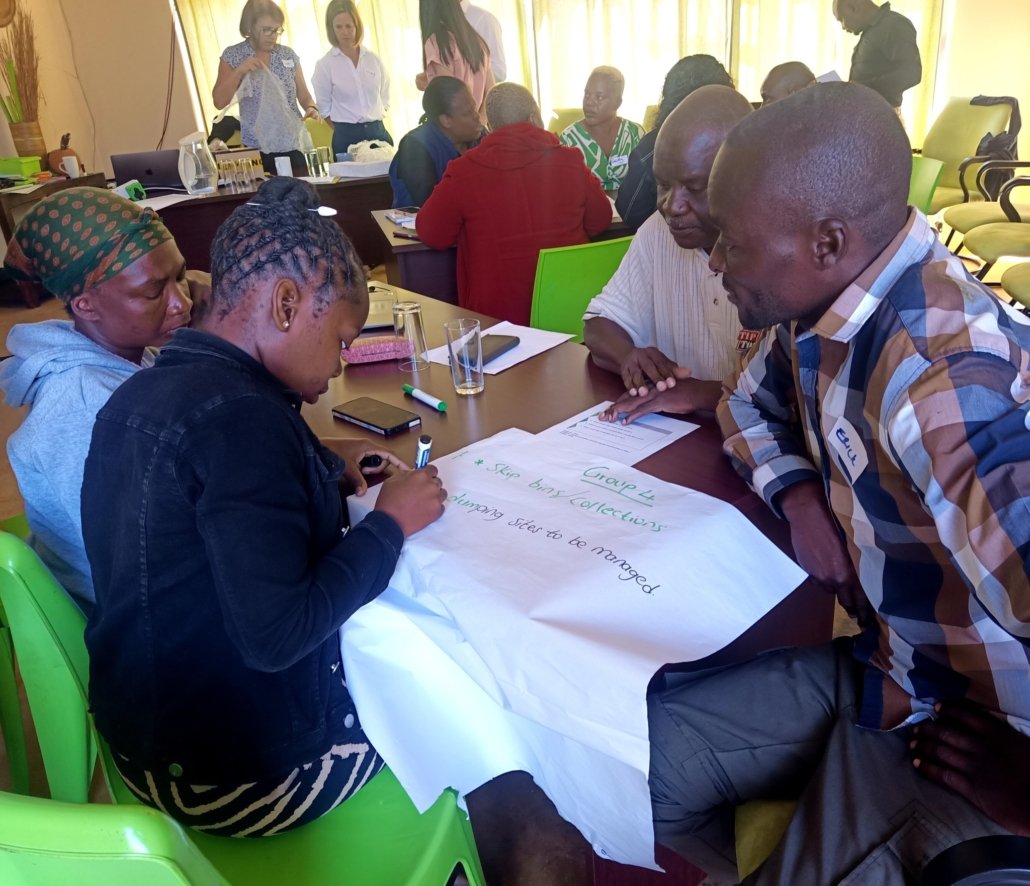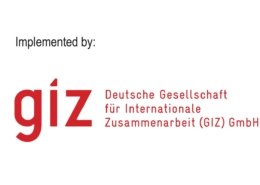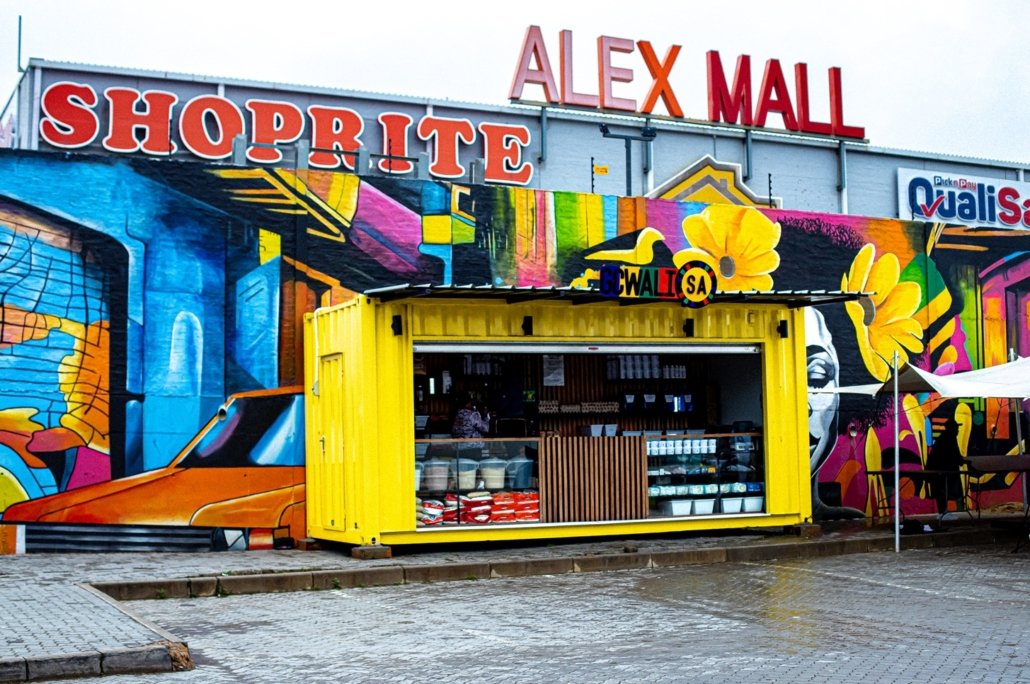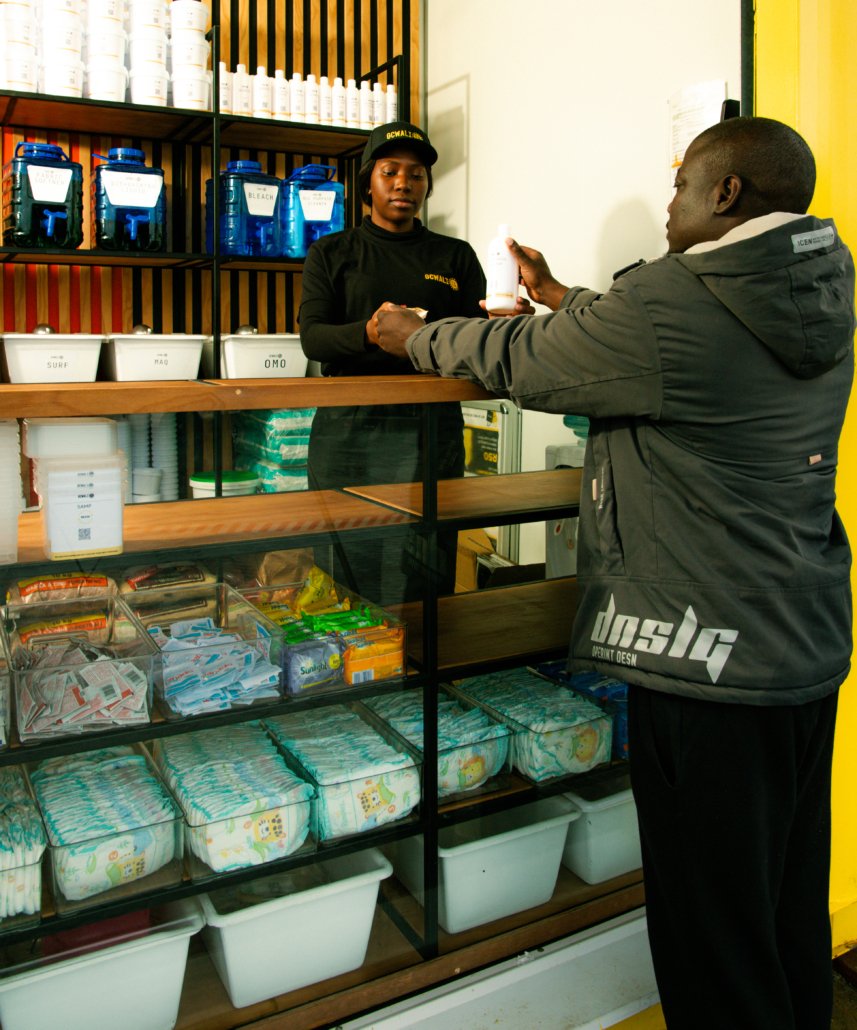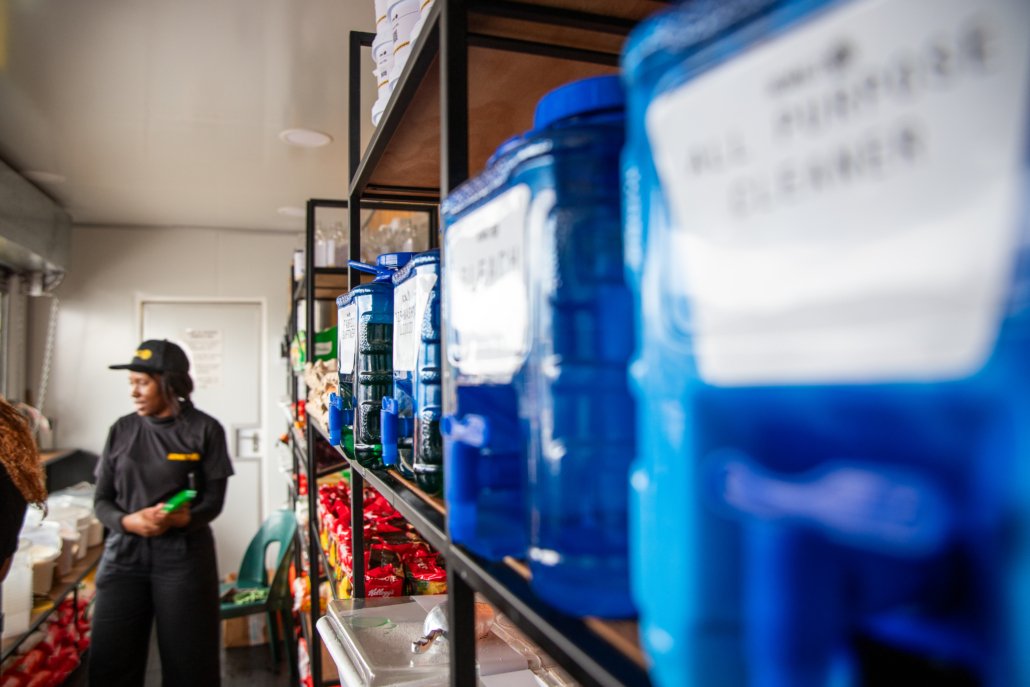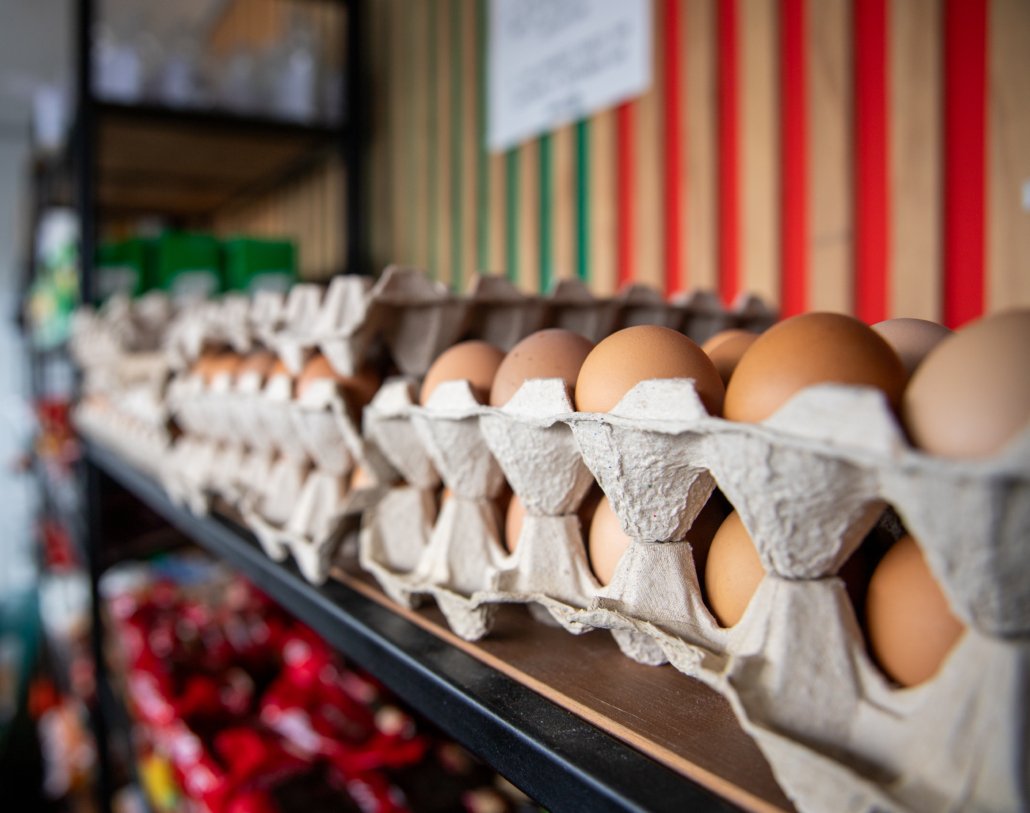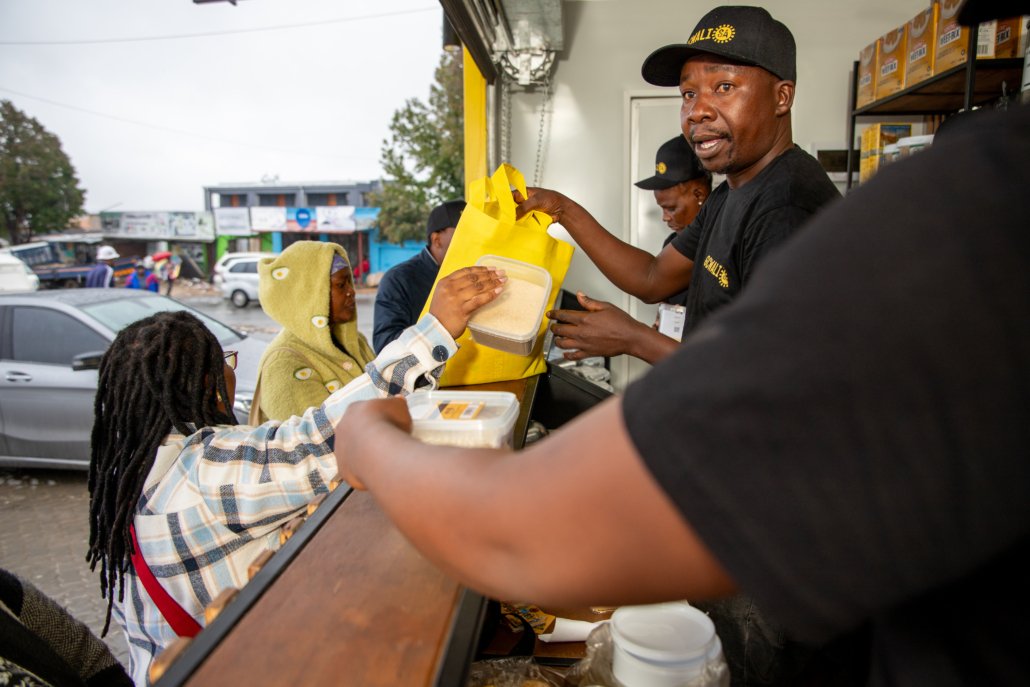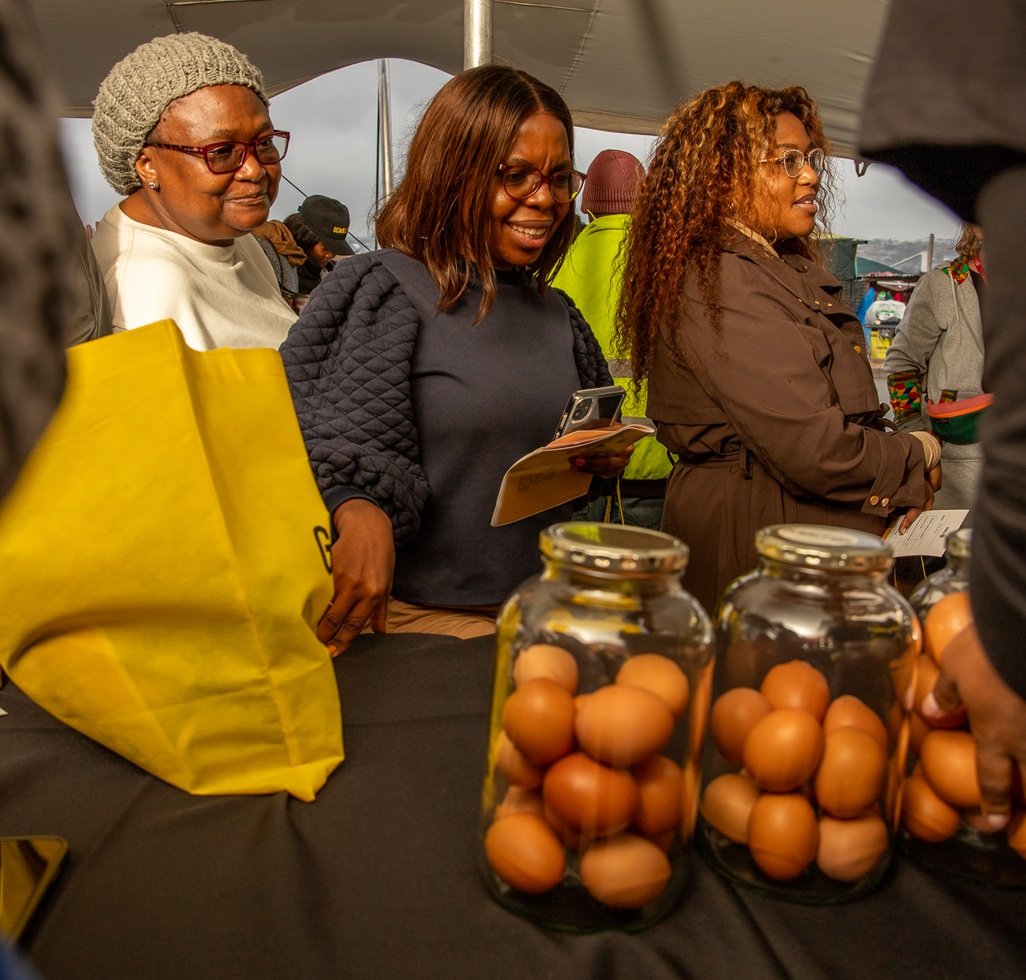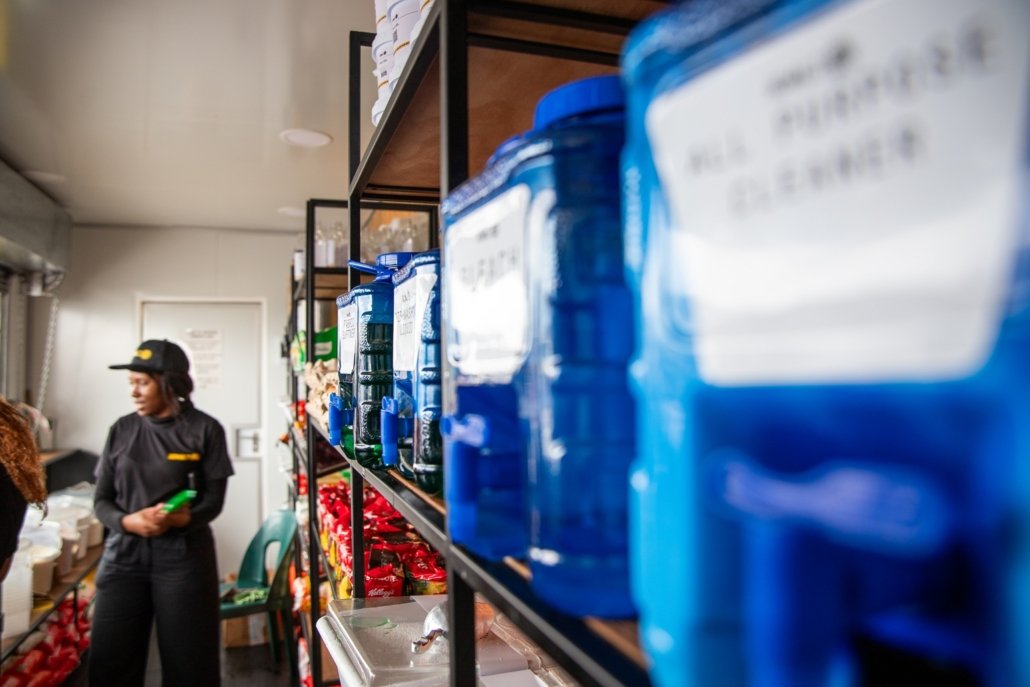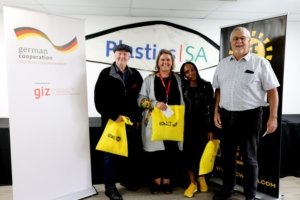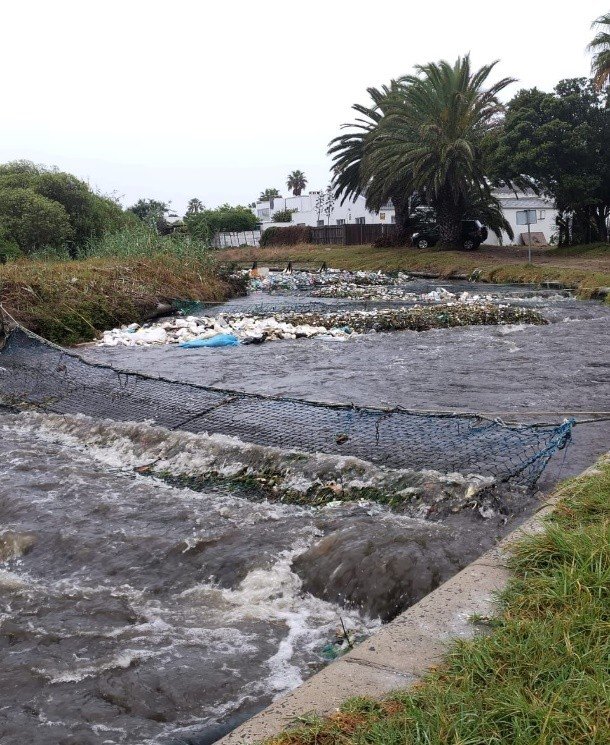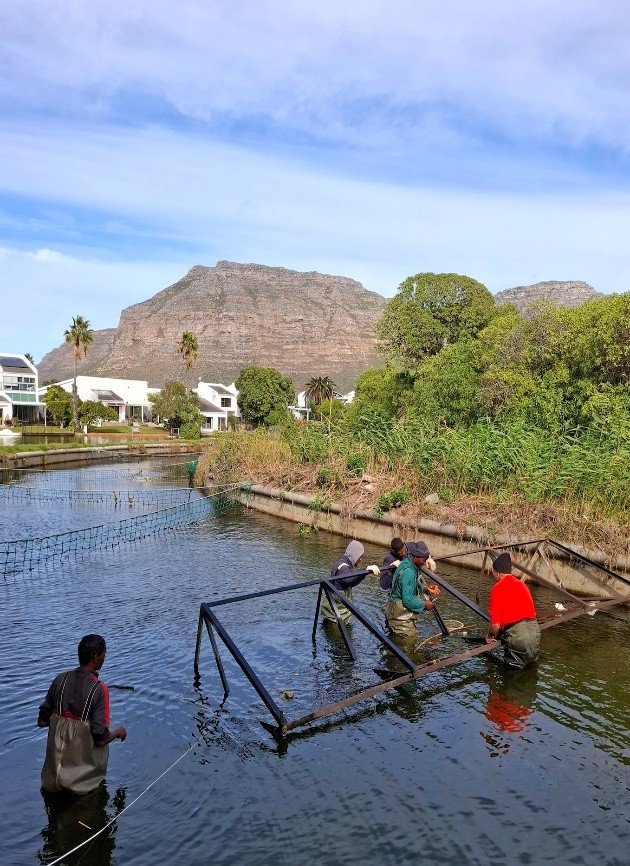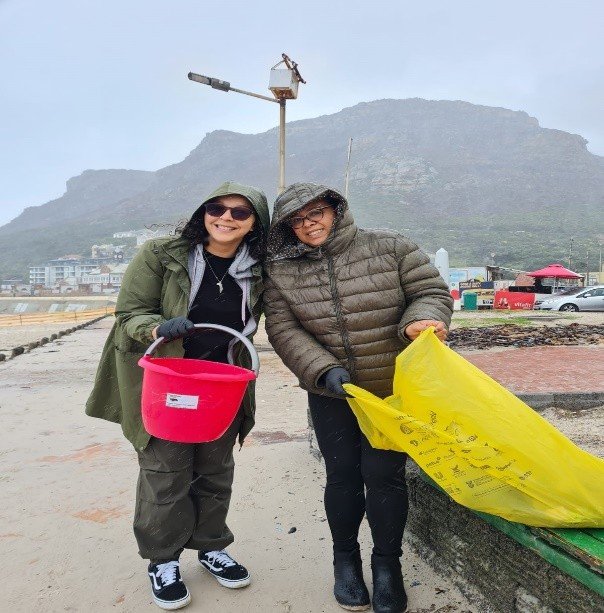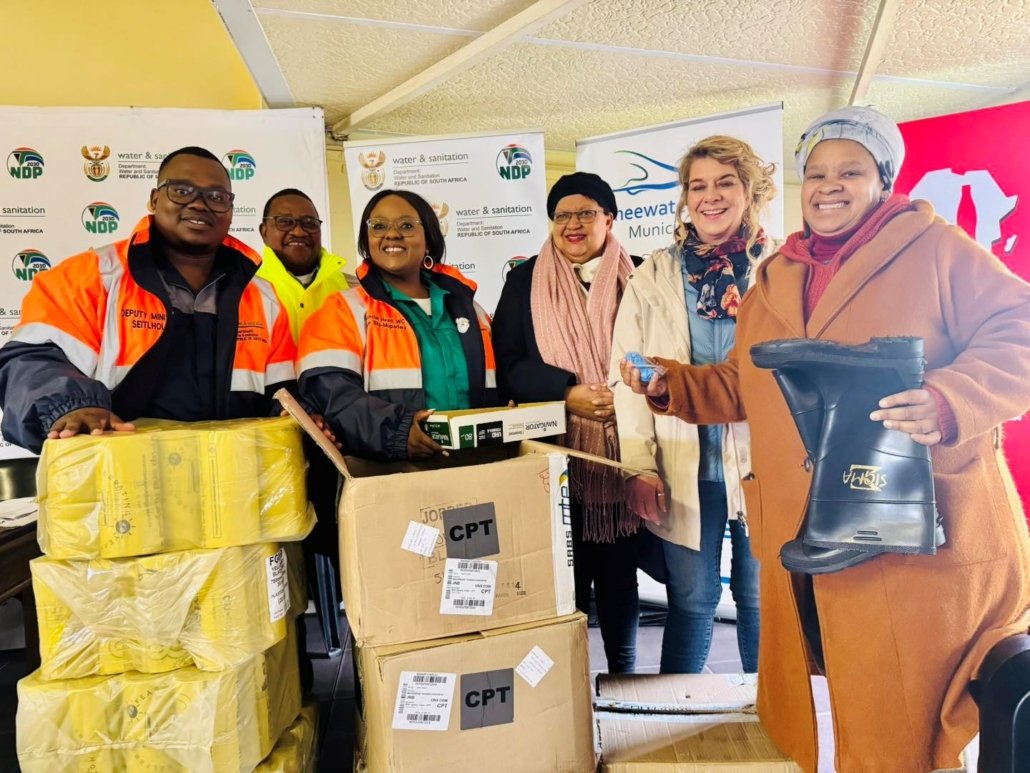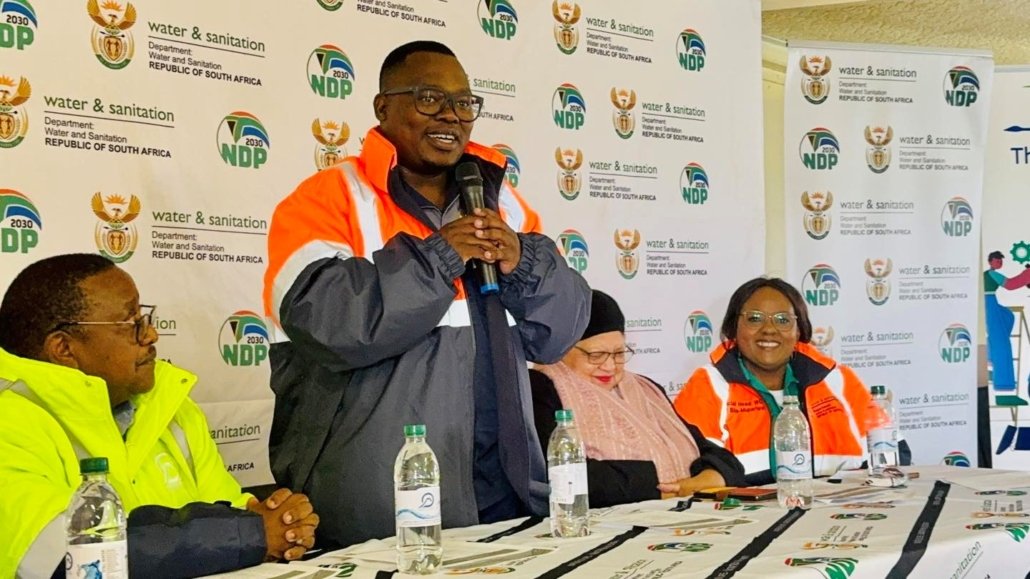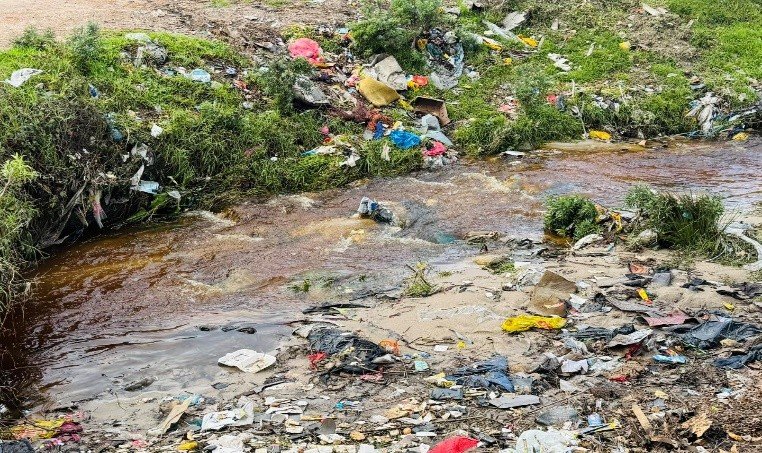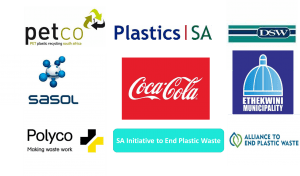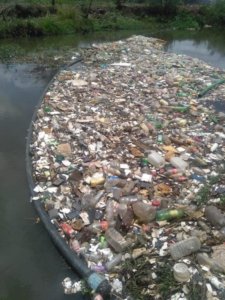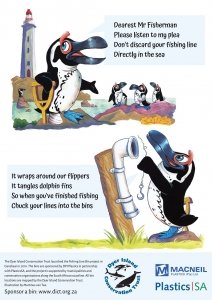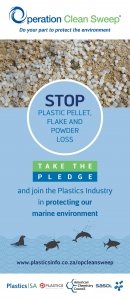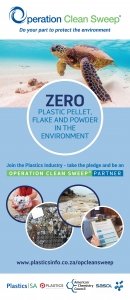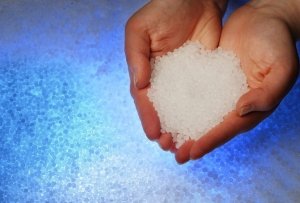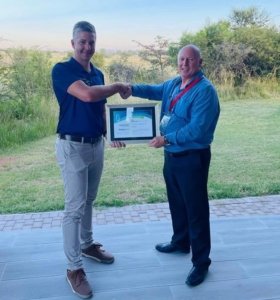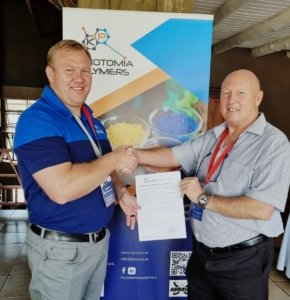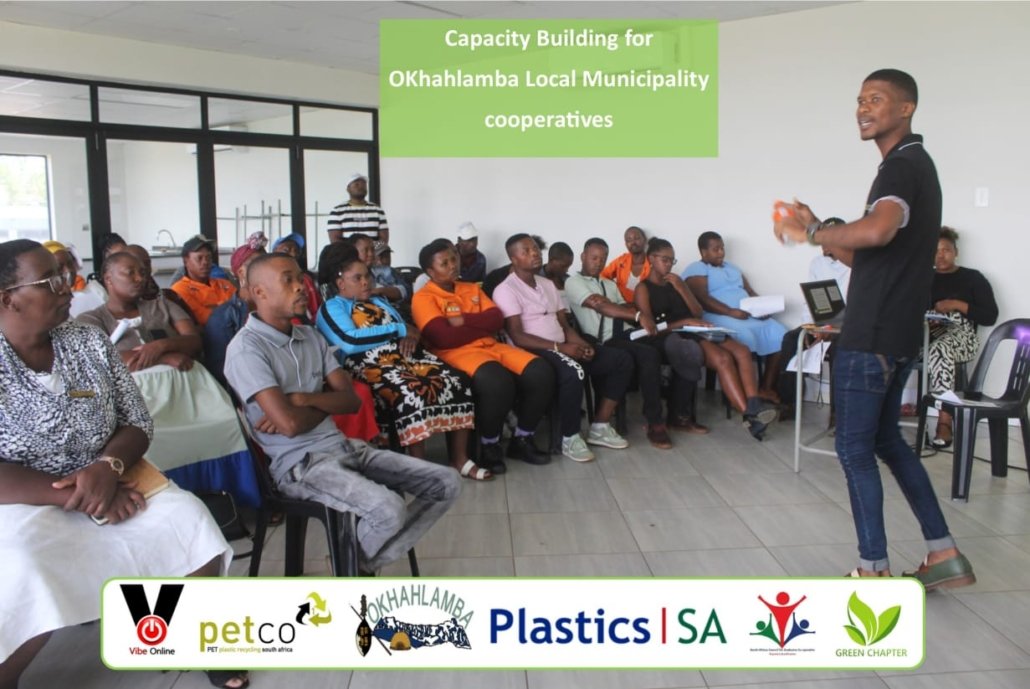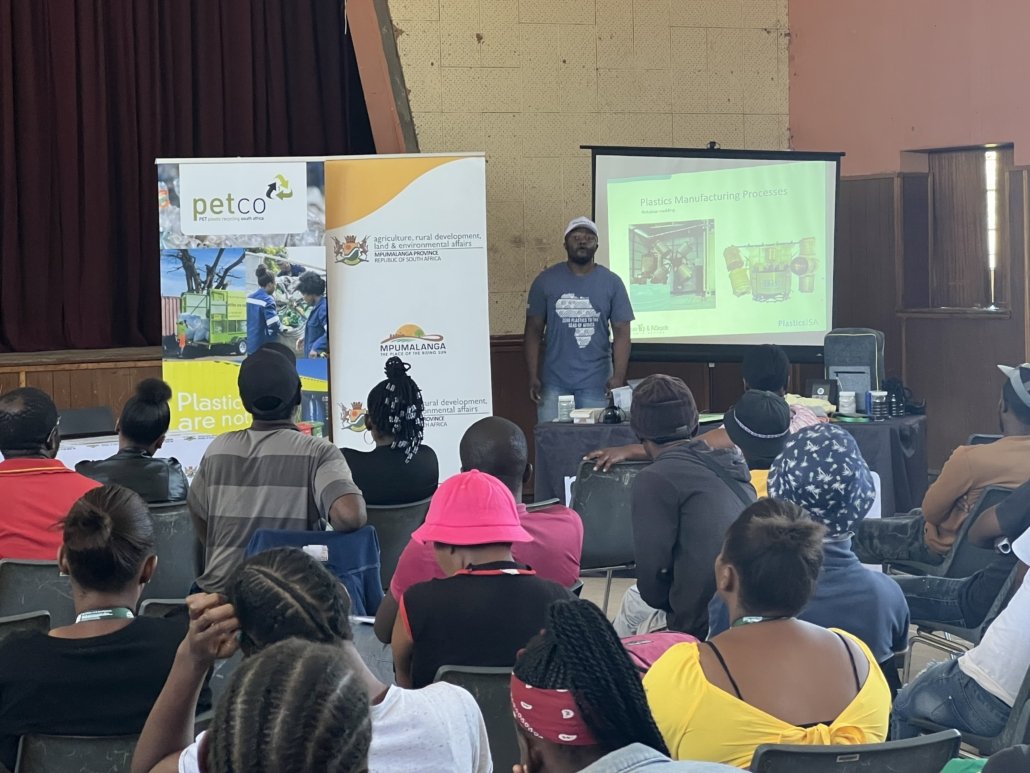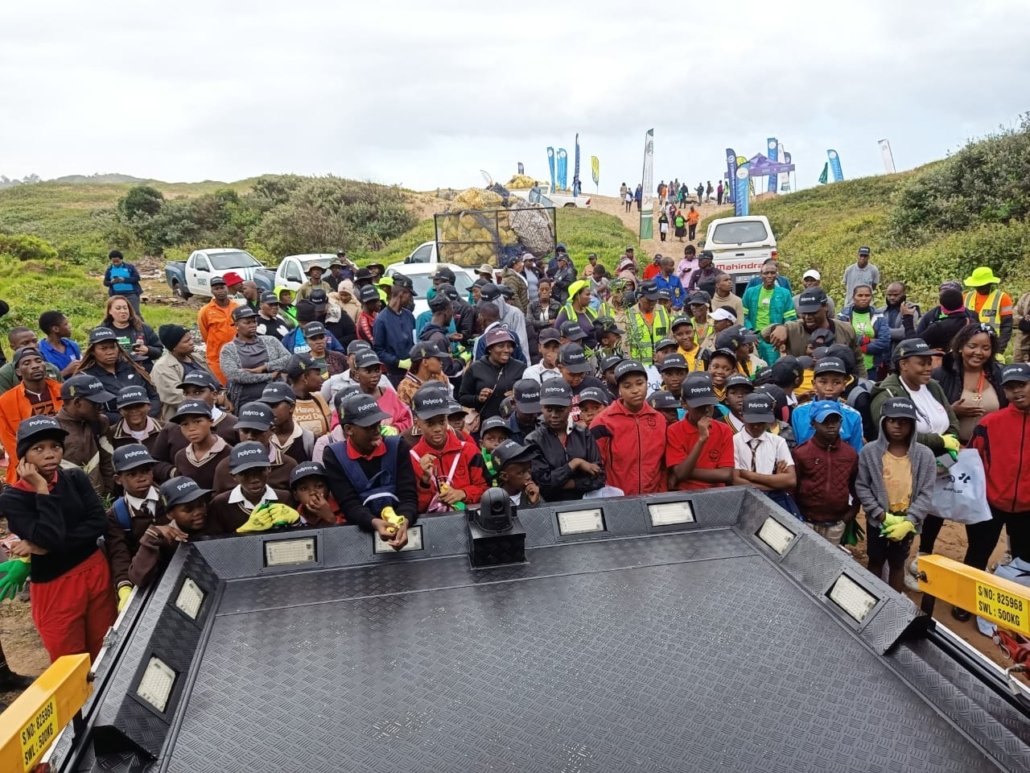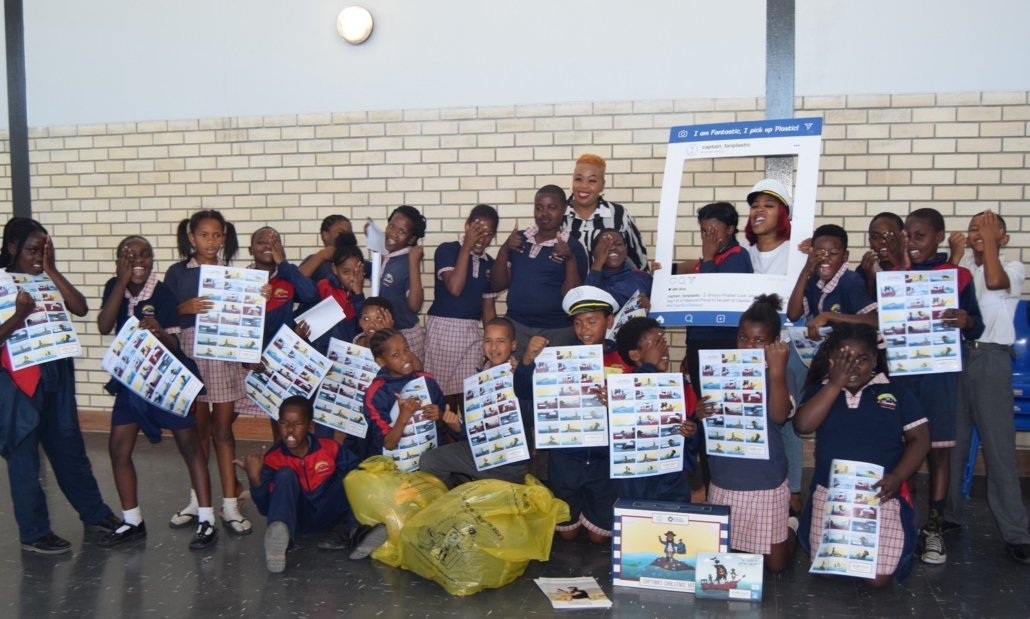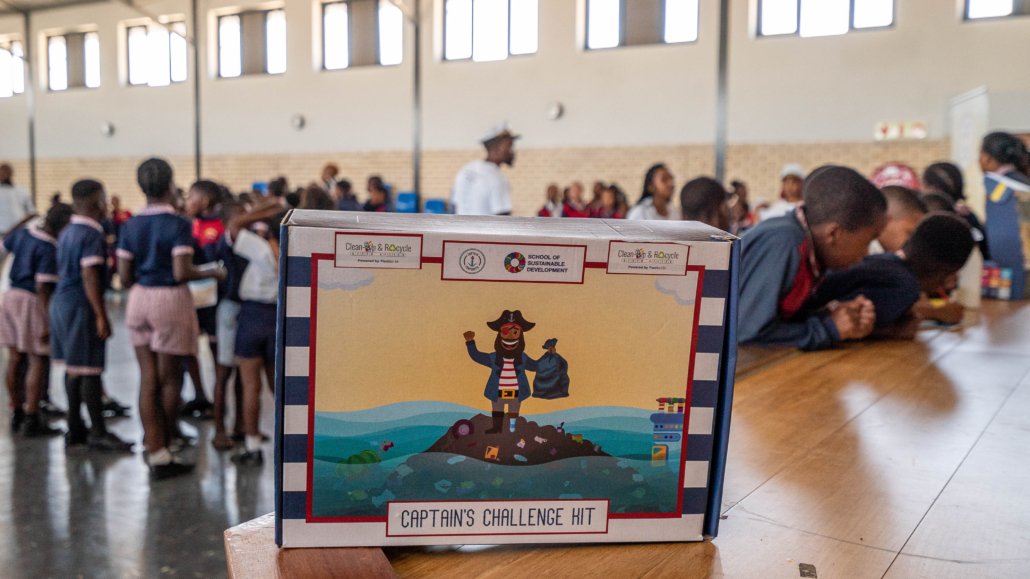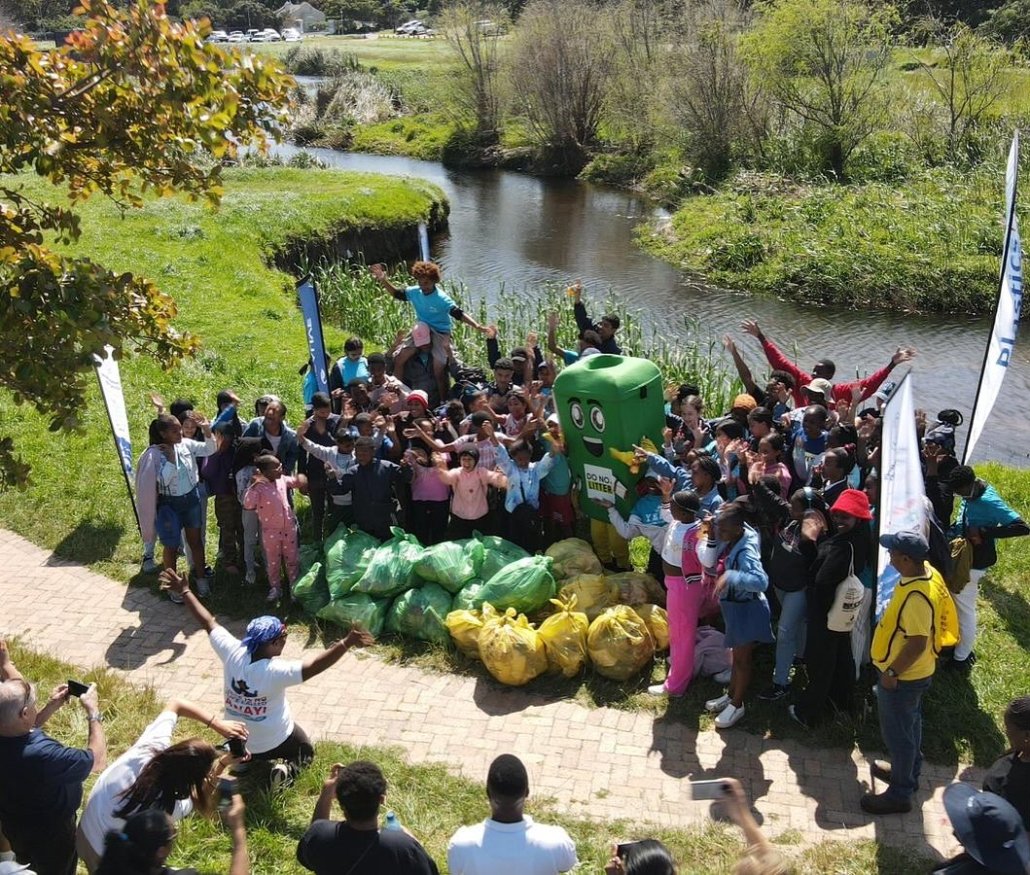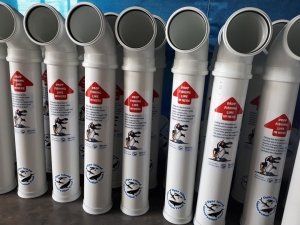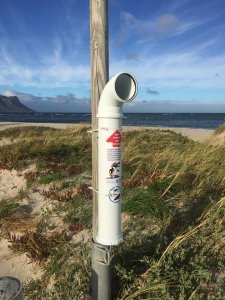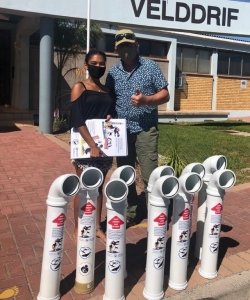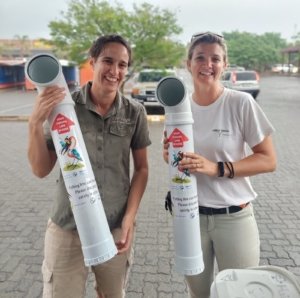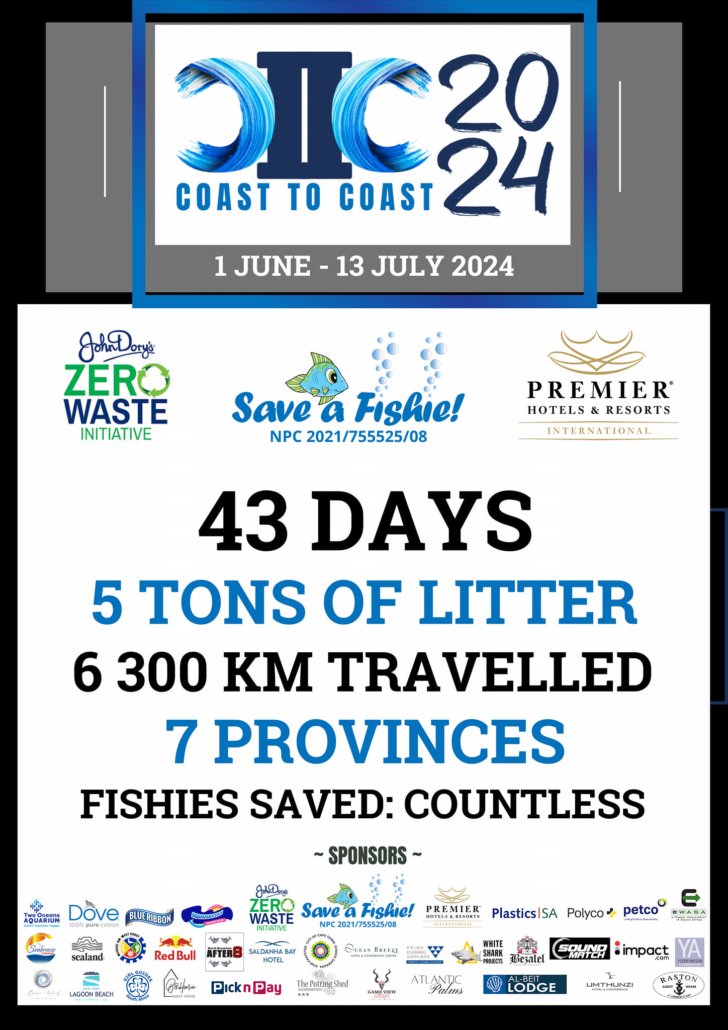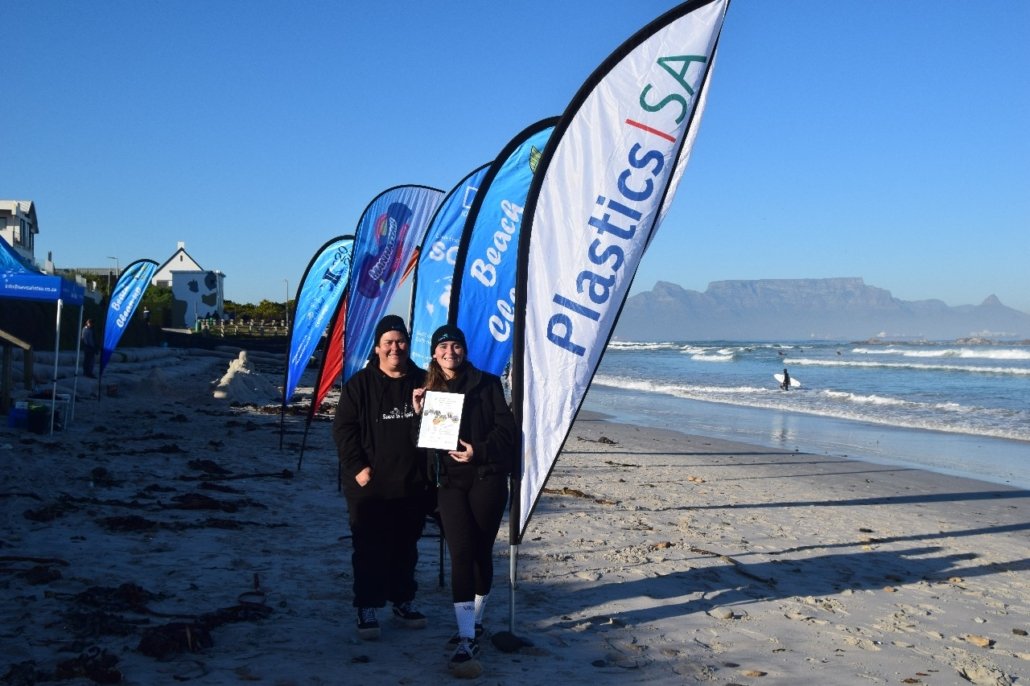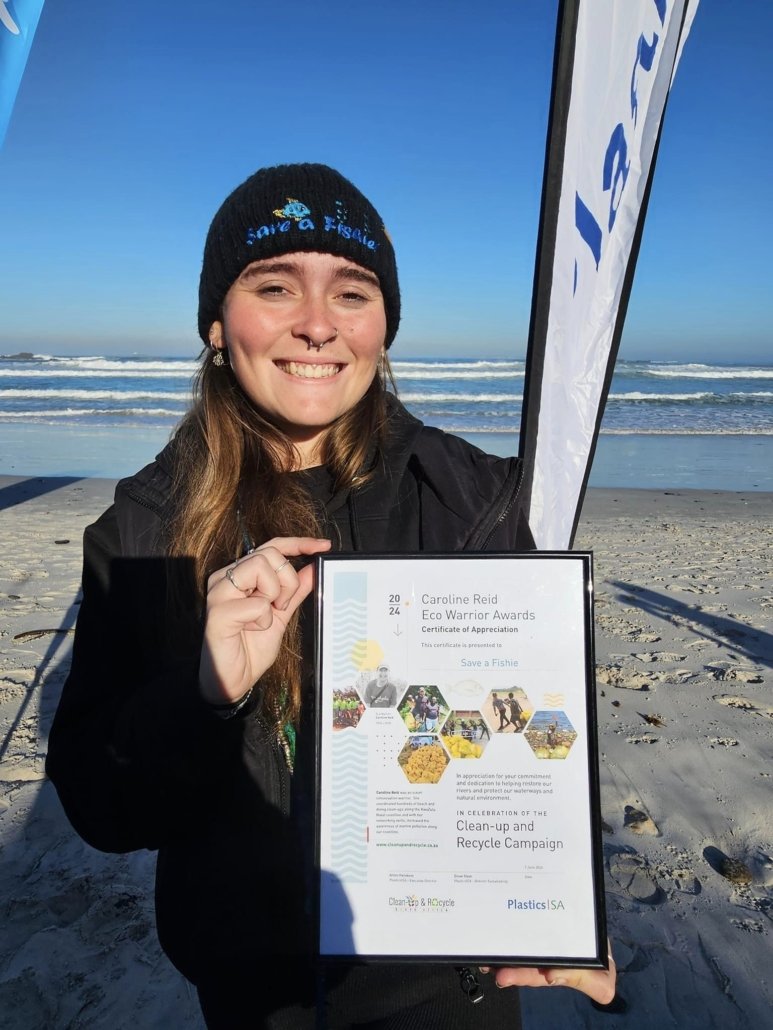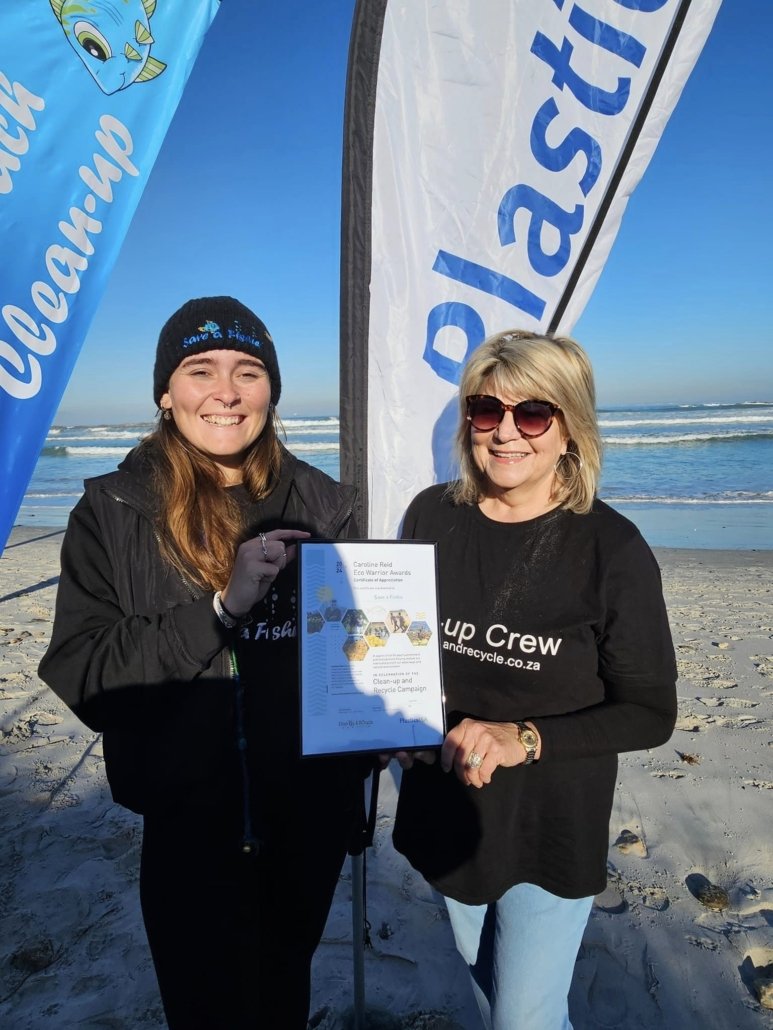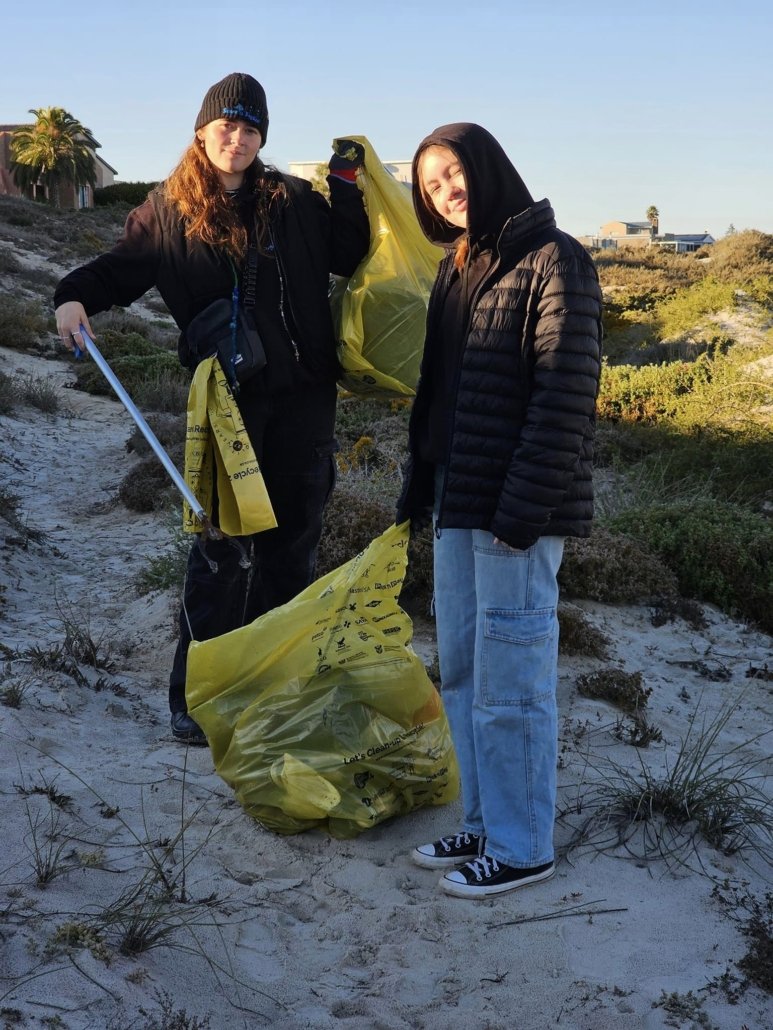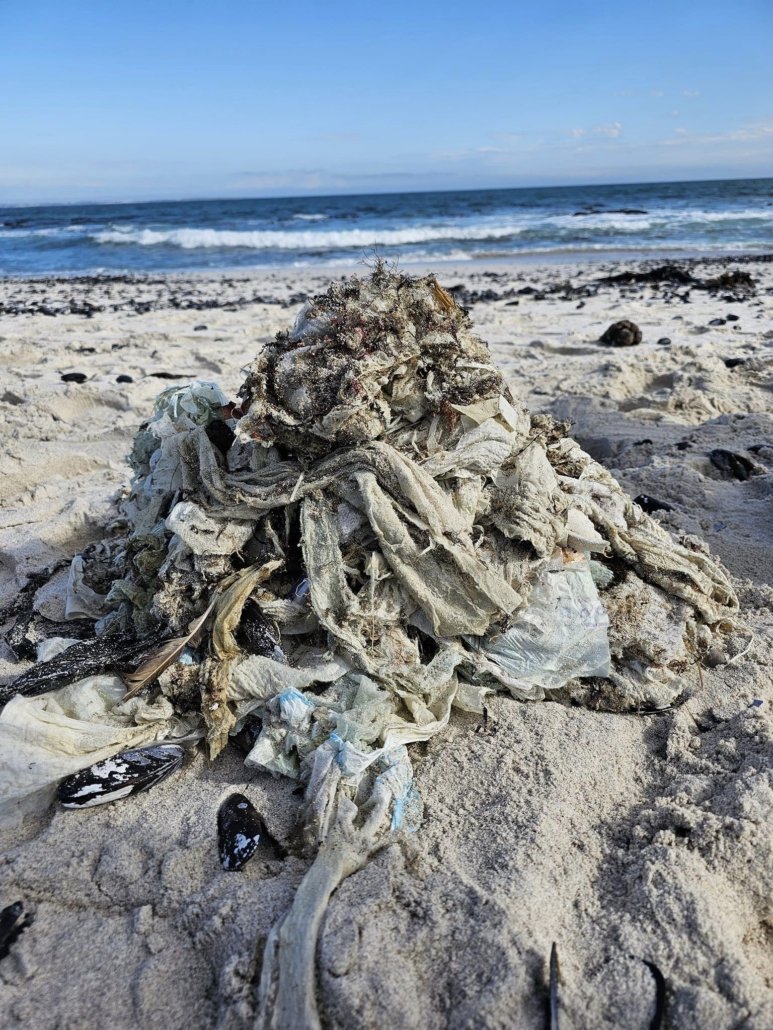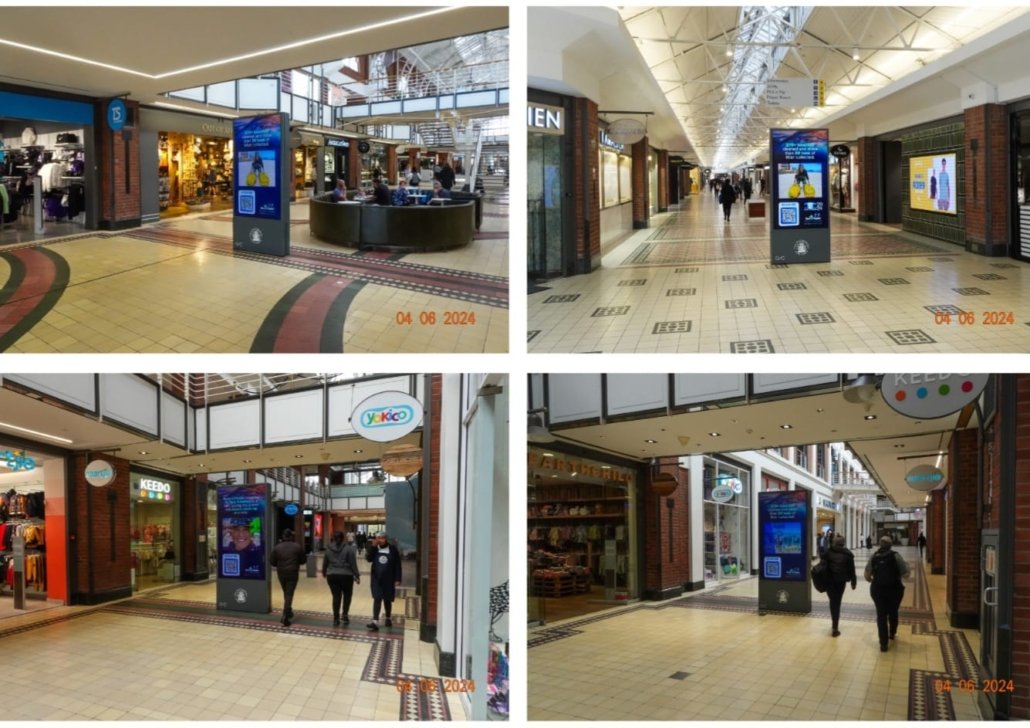ISOW – Innovative Solutions for Waste
South Africa faces serious environmental and socio-economic challenges—including plastic pollution, inefficient waste management, and an unemployment rate projected to reach 33.9% in 2024. In response, ISOW (Innovative Solutions for Waste) is a transformative, community-driven initiative designed to turn these challenges into opportunities by advancing waste recycling systems and fostering sustainable livelihoods.
To address these challenges while fostering economic empowerment, a comprehensive initiative, ISOW, has been launched. This initiative will focus on improving waste management and recycling in South Africa, by enhancing regulatory enforcement, investing in necessary infrastructure, supporting the informal waste sector, and creating employment opportunities, particularly for youth and women. The project is community-focused, delivering “Africanized” innovative solutions that are specifically tailored to the needs of the community and will actively promote entrepreneurship and provide business development and support services.
The project is implemented by the Deutsche Gesellschaft für Internationale Zusammenarbeit (GIZ) and commissioned by the Germany’s Federal Ministry for Economic Cooperation and Development (BMZ) additionally co-funded by the European Union through regional and bilateral Team Europe Initiatives (TEIs) and Norway.
ISOW On-Site Project Manager Induction, 23 October 2025
Plastics SA welcomed Hope Morema, the newly appointed On-Site Project Manager for the ISOW Project based in Bushbuckridge, Mpumalanga (Ehlanzeni District). Hope participated in a two-day Materials and Processing training facilitated by Plastics SA, designed to strengthen her understanding of the plastics value chain and project operations. The session also served as her official induction with the Plastics SA team, introducing her to key partners and project frameworks. Her appointment marks an important step in advancing local implementation efforts, and the team expressed enthusiasm for her positive contribution toward achieving the project’s circular economy objectives.
Technical Workgroup Committee Workshop, 23 October 2025
Plastics SA, GIZ, PETCO, Polyco, and Metpac met to reflect on the outcomes of the ISOW site visits held earlier in Acornhoek and Thulamahashe, and the Stakeholder Workshop at Thulamahashe.
The session aimed to gather feedback from delegates, discuss the best collection options for recyclables from households in the Thulamahashe region, and advise the ISOW team on the design, equipment, and logistics required for the proposed Waste Beneficiation Centre.
A key milestone from the meeting was the formation of the Technical Workgroup, comprising representatives from the participating PROs and Plastics SA. This group will provide ongoing technical expertise and recommendations, supporting the ISOW project’s implementation and ensuring alignment with industry standards and local needs.
Stakeholder Meeting in Bohlabela Chamber, Thulamahashe – 9 October 2025
A Stakeholder Engagement Meeting was held at the Bohlabela Chamber in Thulamahashe, bringing together Plastics SA, GIZ, PETCO, Polyco, Metpac, the Consortium, Bushbuckridge Municipality, ward councillors, traditional leaders, buy-back centres, waste reclaimers, Spar representatives, and community members.
Presentations were delivered by the Consortium on the Feasibility Study, GIZ on the WE4D Programme, and Plastics SA on the ISOW background. The discussions were highly engaging, with stakeholders expressing strong support for the proposed Waste Beneficiation Centre. The community welcomed the project, viewing it as a vital step toward improving waste management challenges, local job creation, and provide opportunities for skills development, education, and community awareness in the area.
Site Visit in Acornhoek and Thulamahashe areas – 8 October 2025
Representatives from Plastics SA, GIZ, PETCO, Polyco, Metpac, the appointed Consortium, and the Bushbuckridge Municipality conducted a site visit to Thulamahashe and Acornhoek. The visit aimed to gain a practical understanding of the local waste management landscape, focusing on residential and commercial collection points, illegal dumping hotspots, and existing waste handling practices. Delegates assessed the readiness of the proposed regional landfill site and the potential location for the Waste Beneficiation Centre under the ISOW project. The PROs engaged with local buy-back centres to explore collaboration opportunities and understand material sourcing and collection systems. Participants observed current waste challenges, including burning, illegal dumping, and landfill operations, gaining valuable insights to guide the design of a community-based waste collection system and inform future decision-making for the ISOW pilot phase.
Mkhuhlu Separation-at-Source (S@S) Pilot Project – August 2025
During August 2025, Samuel Kumbula, Project Coordinator for the ISOW project, visited the Mkhuhlu Separation-at-Source (S@S) Pilot Project in Mpumalanga. Funded by the Department of Forestry, Fisheries and Environmental Affairs and implemented by the Bushbuckridge Municipality under Operation Phakisa, this initiative supports the National Development Plan by creating jobs, promoting recycling, and driving local economic growth.
Samuel met with cooperative waste reclaimers partnering with the municipality on the 12-month pilot, which involves 735 households. He facilitated a materials identification training session, equipping the group with practical recycling knowledge, while also gathering valuable insights into how the pilot operates on the ground. These learnings are especially important for the ISOW project, as they highlight how household collection systems can be adapted and replicated in Thulamahashe.
The Stakeholder Workshop in Bushbuckridge brought together diverse voices – including the municipality, traditional leaders, recyclers, community representatives, Plastics SA, and academic partners.
Discussions underscored the importance of flexible, community-driven approaches that integrate with municipal systems, backed by strong governance and sustainable funding. Key recommendations included:
-
Piloting solutions in both township and village contexts.
-
Strengthening community awareness campaigns.
-
Introducing reusable collection resources.
-
Ensuring waste reclaimers remain central to service delivery.
Building strong partnerships and generating practical solutions that will shape the design of future pilots is the key towards creating inclusive, scalable, and sustainable waste management systems for Bushbuckridge, with the potential for wider replication under the ISOW project.
Strengthening Local Circular Economy Solutions: ISOW Stakeholder Workshop in Bushbuckridge
Date: 3 June 2025
Venue: K2C Offices, Hoedspruit
Plastics SA, in collaboration with the Kruger to Canyons (K2C) Biosphere Region and key partners, hosted a highly successful stakeholder engagement workshop in Hoedspruit as part of the Innovative Solutions for Waste (ISOW) Project.
The session brought together over 35 diverse stakeholders, including municipal representatives, traditional leaders, waste reclaimers, Buy-Back Centre owners, NGOs, and community members from Thulamahashe and Acornhoek. The goal was twofold: to share and validate the findings of a recent baseline study and to collaboratively develop ideas for a proposed local Beneficiation Centre (BC)—a facility aimed at improving waste diversion, supporting processing initiatives, and creating income opportunities within the Bushbuckridge Municipality.
Key Themes and Outcomes
1. Community Voices
Participants strongly supported community-driven waste solutions and provided valuable insights into the realities of the local informal waste system. Challenges such as illegal dumping, poor infrastructure, and inconsistent waste collection services were key concerns.
2. Baseline Study Insights
Findings from surveys with households, schools, businesses, and waste reclaimers were confirmed by participants, providing a solid foundation for further planning.
3. What Works & What’s Needed
While informal community collection networks are functioning well, stakeholders stressed the need for public education, stronger bylaw enforcement, better infrastructure, and more formalised systems to support reclaimers.
4. Beneficiation Centre Potential
The proposed BC was seen as a strong opportunity for job creation and local economic growth—if designed with community ownership, transparent governance, and reliable market access. Key concerns included land availability, security, and the need for long-term support structures.
5. Separation-at-Source (S@S)
For the BC to be effective, households and businesses must separate recyclables at source. Consistent and convenient collection systems are crucial. Suggestions included establishing school or community drop-off points and fostering relationships between households and reclaimers.
6. Addressing Unique Waste Streams
An urgent issue highlighted was the dumping of nappies in agricultural land and rivers. Stakeholders discussed practical, community-driven solutions, including promoting reusable nappies and exploring safe incineration methods.
Next Steps
The workshop marked an important step in co-creating sustainable circular economy solutions for Bushbuckridge. The energy, openness, and shared insights will directly inform Phase 2 of the ISOW Project: a detailed feasibility study for the Beneficiation Centre.
Plastics SA remains committed to supporting inclusive, locally relevant initiatives that keep plastics in the economy and out of the environment.
Our Partners
- Polyco PRO NPC
- Petco PRO NPC
- The EPR Waste Association of South Africa (eWASA)
- Dow Chemical Company
- Municipal Authorities
- Waste picker associations: African Reclaimers Organisation (ARO) and the South African Waste Pickers Association (SAWPA)
- Re-processors and recyclers
- Communities who benefit from the circular economy model
Current Focus Area
The current focus is in the province of Mpumalanga and in the district municipality of Ehlanzeni. The local municipality identified is Thulamahashe, located close to the Kruger National Park which is a major tourist attraction and an environmentally sensitive area.
Our Goal
The Project’s goal is to have non-organic waste (“dry waste”) transported and aggregated at a newly established collection facility, known as a Waste Beneficiation Centre, a central hub where registered informal waste pickers and collectors will collect non-organic waste as opposed to picking waste at landfills or kerbsides. The Project will also provide waste sorting training and those with entrepreneurial aspirations can receive training in the day-to-day operations of a recycling business, equipping them with the skills needed to potentially run their own Beneficiation Centre in the future. Accredited training for Self-employed Materials Recyclers and Paper and Packaging Collectors, will also be offered. PRO’s and the chemical and plastics manufacturer Dow have agreed to supply essential tools such as scales, baling machines, and trailers to the Waste Beneficiation Centre.
For more information on this project please feel free to contact Douw Steyn or Samuel Kumbula
Latest Update on Gwalisa
Measurable Impact in Just Months
Operating out of four outlets across Alexandra, Gcwalisa has made impressive strides in a short period. Between April and June 2025 alone, the initiative recorded:
- Over 2,400 reuse purchases and returns
- An increase to 1,194 active returns, showing strong customer adoption
- Four women employed as Reuse Ambassadors, trained through the Pathways to Possibilities (P2P) programme, earning income while spreading the reuse message
These outcomes signal more than just numbers, they reflect a shift in consumer behaviour and the power of reuse when it’s rooted in trust, convenience, and community benefit.
In order for the re-use concept to work, the containers had to be reusable, durable, recyclable, lightweight, cost effective and, for food products, food safe, and polypropylene (PP) jars and buckets and polyethelene terephlate (PET) bottles were the perfect match. Two reliable South African plastics manufacturers supply all of the containers. All packaging is labelled with the specific product name, reuse process and a unique QR code to track reuse. Customers may also choose to bring their own containers to refill.
Empowering Women, One Container at a Time
Education and engagement are central to Gcwalisa’s mission. Colourful community activations, complete with music and hands-on demonstrations, have drawn curious onlookers and converted them into customers. Surveys show that 78% of participants are women, many of them unemployed. The initiative not only offers a way to save money and reduce waste but also restores dignity and confidence.
Cash-back incentives encourage residents to return containers, and participants have voiced that they feel safe using the reused packaging. What started as a localised pilot is quickly evolving into a scalable model of how circular economies can work in informal urban settings and be driven by women.
From TikTok to Townships: The Power of Storytelling
Even social media is playing a part. TikTok videos showcasing Gcwalisa’s journey have helped spread the word to younger audiences, proving that sustainability can be both practical and shareable. Storytelling, online and in person, is changing perceptions around reuse and highlighting it as an aspirational lifestyle, not just a necessity.
Looking to the Future
The next chapter for Gcwalisa is all about deepening habits and measuring long-term impact. Through a mix of SMS and WhatsApp reminders, staff training, and in-store signage, the project aims to solidify its customer base and track the tangible benefits, including the volume of waste diverted from landfills, emissions reductions, and household savings.
With continued support and innovation, Gcwalisa is well on its way to becoming a model for scalable, community-led sustainability, not just in South Africa, but across the continent.
#ReduceWaste #ReuseRecycle #SustainablePackaging #ZeroWasteCities #EcoFriendlySolutions #CircularEconomy #GreenCities #PackagingRevolution #WasteLess #DevelopmentCooperation #GreenerFuture
Tackling food security in South Africa, while solving the issue of waste in food packaging.
Gcwalisa, together with integral partners, is pioneering a method of tackling food security in South Africa, while solving the issue of waste in food packaging. Nutritious food and basic household products are sold through a pay and weigh model, providing relief to low-income households amid rising food costs.
Gcwalisa is a beneficiary of the Circular City Labs CCL* Project, implemented by Deutsche Gesellschaft für Internationale Zusammenarbeit (GIZ), on behalf of the German Federal Ministry for Economic Cooperation and Development (BMZ), funded through the BMZ Initiative for Climate and Environmental Protection (IKU). Plastics SA is the local implementing partner for GIZ.
Gcwalisa recently piloted a new reuse system as part of the Circular City Labs’ Project. Customers fill reusable packaging with their products, paying a small deposit which is refunded when the empty container is returned to the store. Reusable packaging systems are an important part of the circular economy – less packaging leads to less waste.
*Circular City Labs CCL aims to reduce greenhouse gas emissions through waste prevention by promoting reusable packaging systems and strengthening the participation of women in local circular economies.
In GIZ South Africa, Lesotho and eSwatini, the CCL Project is part of the Centre for Cooperation with the Private Sector (CCPS).
#ReduceWaste #ReuseRecycle #SustainablePackaging #ZeroWasteCities #EcoFriendlySolutions #CircularEconomy #GreenCities #PackagingRevolution #WasteLess #DevelopmentCooperation #GreenerFuture
Zandvlei Trust
Plastics SA continues to play an important role in supporting community-driven environmental initiatives, helping organisations ease the operational and financial burden of keeping our waterways clean.
One such beneficiary, the Zandvlei Trust, has made significant progress in protecting the Zandvlei lake system thanks to this support. The Trust has successfully installed litter traps along the Zandvlei canal, preventing waste from flowing into the lake. In addition, metal grates have been fitted to stop large objects from entering the water, while broken nets and litter booms have been repaired and reinstated to improve waste capture and removal.
This collaborative effort is helping to restore and protect the Zandvlei ecosystem, demonstrating how partnerships can make a tangible difference in keeping our waterways clean and healthy.
William Litter Friday
Visions of Change, Muizenberg
Visions of Change, a passionate community organisation based in Muizenberg, Cape Town, continues to lead by example in protecting the environment. Known for their regular clean-ups, these local eco-warriors are dedicated to keeping their community clean and raising awareness about responsible waste management.
This July, Visions of Change reaffirmed their commitment to sustainable practices that not only reduce plastic pollution but also help to lower the community’s carbon footprint through active recycling initiatives.
Their efforts highlight the power of community action in creating cleaner, healthier spaces and inspiring others to adopt more sustainable lifestyles.
Ministerial Clear River Campaign Promotes Cleaner Rivers and Responsible Recycling
The Clear River Campaign, launched by Deputy Minister of Water and Sanitation Sello Seitlholo, is gaining momentum as it continues to inspire communities across South Africa to protect and preserve the country’s river systems. This national initiative encourages active citizen participation to keep rivers clean and safeguard the quality of our water resources.
As part of this drive, Plastics SA proudly donated 2 000 plastic bags to the Blue Deals community organisation in Grabouw to support local recycling initiatives and encourage responsible waste management.
In his address, Deputy Minister Seitlholo reminded South Africans of the vital link between clean rivers and safe drinking water:
“What comes out of the tap is determined by the quality of water in our rivers and dams. We are quick to protest when water does not come out of the taps, but we do not care about how polluted our rivers are.”
He further highlighted the need to educate children about environmental responsibility, ensuring they grow up understanding the importance of protecting natural resources. Calling for a united effort, he stressed that pollution should be regarded as a national crisis, sparking dialogue and action at every level of society.
The Clear River Campaign is more than just a cleanup initiative—it is a call to action for every South African to take responsibility for the health of our waterways and the future of our environment.
Left to Right: Deputy Minister Sello Seithlolo, CEO Overberg Water Board Dr P.Buthelezi, Provincial Head Water and Sanitation Ntombizanele Bila-Mupariwa, Deputy Mayor Theewaterskloof Municipality Councillor Clayton, Lynette Blue Deals Organisation – equipment handover to Blue Deals
Deputy Minister Sello Seithlolo giving a speech on water management
River pollution in Grabouw
KZN Amanzimtoti River Catchment Project
Inkwazi Isu (Fisheagle Project) is the brainchild of a group of collaborators from Industry and Civil society who engaged with the eThekwini Municipality and put together a project to address education, infrastructure development and an Innovation Hub, to develop new ideas for entrepreneurs, to highlight plastic pollution on the KZN South Coast.
In Amanzimtoti, the stakeholders came together to design and implement a comprehensive difference in the way plastic waste is managed. After the last flash floods that covered the beaches with tonnes of plastic, local NGO Clean Surf Project decided that more had to be done than simply picking up after the problem. Two immediate interventions were required and the Inkwazi Isu was born. The KZN Marine Waste Network South Coast was formed and industry leaders including Coca Cola Beverages South Africa, SASOL, PETCO, Polyco, Polystyrene Association of SA, Plastics SA and local community leaders got together to address the situation. Coca Cola Beverages South Africa sponsored a Beach Rake with a Unimog, a multi purpose vehicle, which was being operated by Clean Surf Project and removed the smaller particles of plastic that cannot be picked up by hand, and therefore improved the quality of our beaches. SASOL funded a Baseline Study to quantify the problems and drew up a project to address the issues, education, collection at source, recycling, and river clean-ups.
Working closely with the Municipality, Industry and Civil Society, a support mechanism was established to empower local informal recyclers, local businesses and NGO’s to overcome the current practices of treating used plastic as a worthless product and enabling the potential of its recycling value to be reached.
By identifying and facilitating strategic partnerships and facilitating shifts in the collection and processing of recyclable plastic, KZN Marine Waste Network South Coast through the Inkwazi Isu provides improved environmental education and training, the development of infrastructure to supply Buy Back Centres and infrastructure to assist collectors and recyclers,developing a new locally based value chain for used plastic, which is essential for reduction, reusing and recycling.
Litter Booms help fight ocean pollution
World Oceans Day takes place in June each year and activities focus on preventing plastic pollution and encouraging solutions for a healthy ocean.
Plastics|SA has joined forces with environmentalists north of Durban, to fight ocean pollution by installing a litter boom at the Umhlanga lagoon. The boom was designed to trap litter and prevent it from entering the ocean and was launched in celebration of World Oceans Day.
“Our aim is to reduce the amount of litter that washes into the sea from the Ohlanga river. The litter boom floats on the surface of the water and acts as a trap that prevents all the floating litter from washing down into the estuary and into the sea. It then allows for that litter to be collected at one point. The device does not pose a risk to any species found in the lagoon.On the same day, a beach clean-up was organised by The Winds of Change Group and Point Yacht Club, who, between them, collected 400 bags of litter. Plastics|SA sponsored a public shark dissection and education session which took place on the Umhlanga Main beach, hosted by Steven Mabugana from Aqua Amazing.
Our partners on the day included DPAPP, Durban Green Corridor, Umhlanga UIP, Upper Umhlanga Security Trust, KZN Recycling Form, USE –IT, Tetrapak and AquaAmazing who did a shark dissection as part of the education drive to inform beachgoers of the effects of litter on our environment.
The Declaration of the Global Plastics Associations for Solutions on Marine Litter, launched in March 2011, is a global declaration and public commitment made by the international plastics community to address the issue of plastics in the marine environment, which includes Operation Clean Sweep.
The Operation Clean Sweep Programme South Africa was launched on Thursday, 8 June 2017 at Ushaka World, Durban during World Oceans Day Celebrations.
This interactive report highlights the 2024 achievements for each Operation Clean Sweep® (OCS), the world’s largest industry-led stewardship program to prevent plastic resin loss in operations.
THE GOAL: achieving zero pellet, flake, and powder loss.
Most plastic consumer products are made from small plastic pellets the size of a small sunflower seed (without the shell). Plastic makers have developed an innovative program called “Operation Clean Sweep” to help keep these pellets where they belong – in factories, trucks and railcars and out of the natural environment. Download the manual and poster below for your manufacturing environment. Every segment of the plastics industry has a role to play—including resin producers, transporters, bulk terminal operators, recyclers and plastics processors—by implementing good housekeeping and pellet, flake, and powder containment practices.
The following organisations are signatories of Operation Clean Sweep® (OCS) in South Africa
These companies have joined the fight against plastic pollution by signing the Operational Clean Sweep (OCS) pledge in Southern Africa and committed to preventing resin pellet, flake, and powder loss, in order to reduce the amount of plastic ending up in rivers and oceans.
Associations and PROs:
PETCO
POLYCO
ARMSA
EPSASA
SA Vinyls Association
SAPPMA
PCA
SAPRO
Converters:
Polyoak
Berry Astrapak
Plastic Bubbles
Neptun Boot
Kainotomia Polymers
Raw materials:
Sasol
Safripol
Recyclers:
Myplas
Tufflex
Logistics:
Unitrans Supply Chain Solutions
.
Key environmental education initiatives
Collector Training Workshops: Plastics SA is committed to enhancing recycling capabilities through specialised training workshops. These sessions empower individuals and businesses involved in collecting for recycling to adopt best practices, ensuring a more efficient and sustainable recycling process.
Community Clean-ups: Plastics SA actively supports and participates in beach, river, and community clean-up initiatives across the country. By collaborating with local communities, the organisation strives to raise awareness about the detrimental effects of plastic pollution and promote responsible waste disposal.
Municipal Engagement and Training: Plastics SA works closely with local municipalities to provide training to waste collectors and other stakeholders involved in waste management. This collaborative effort aims to improve waste collection processes and ensure the effective implementation of sustainable waste management practices.
Captain Fanplastic School Programme: Targeting schools, Captain Fanplastic delivers a powerful message about the importance of recycling. Plastics SA is a proud supporter of this educational initiative, which aims to instil environmentally conscious habits in the younger generation, fostering a culture of sustainability and responsibility.
River Clean-ups and Community Education: Plastics SA prioritises river clean-ups and partners with various organisations to deliver ongoing training and education to communities living near rivers and streams. Initiatives such as the Litterboom Project and the Inkwazi Isu River Catchment Project emphasise the significance of protecting water sources and preventing plastic pollution in these vital ecosystems.
Sustainable practices to safeguard aquatic ecosystems: Plastics SA is the custodian of Operation Clean Sweep (OCS) in South Africa which aims to make zero plastic resin loss a priority for the plastics industry. Spilled pellets, flakes, and powder can make their way into local waterways and ultimately estuaries and the ocean. This isn’t just an eyesore and a litter issue: pellets, flakes, and powder could accidentally be mistaken for food by birds or marine animals. OCS educates manufacturers and recyclers about safe and responsible manufacturing processes that strive towards achieving zero pellet, flake, and powder loss.
As a result of the success of the Fishing Line Bin project, more than 386 bins can now be found at most of the popular angling beaches around South Africa’s coastline, with plans to extend this number to 500 reaching as far afield as Mozambique. More than 350 kg’s of discarded fishing line have already been removed, some of which has been recycled into bush cutters line. In excess of 500 fishing hooks have also been retrieved from these bins.
These fishing line bins stand 60 cm high and act as repositories for used, discarded monofilament fishing line. Off-cuts of PVC pipe (donated by MacNeil Plastics) are used to create a uniquely shaped 60cm tall bin with a U-Bend end-piece that prevents the lines from being blown away. They are also resistant to the elements and corrosion and therefore ideal for long-term use on beaches.
Discarded fishing material (nets, mono filament line, and Cray fish trap anchor ropes) is responsible for damage to marine life. What makes it especially dangerous is that it cuts into the skin and flesh of larger mammals (i.e. seals). The material is also dangerous for human swimmers and boating as it can damage propellers of boats. By increasing public awareness about the negative impact of fishing line debris on marine life, water quality, and human welfare, the project’s goal is to reduce the amount of fishing line entering and remaining in the marine environment.
Plastics SA, the Dyer Island Conservation Trust and the Wildlife and Environmental Society of Southern Africa (WESSA), MacNeil Plastics, DPI Plastics and the South African Plastics Pipe Makers Association (SAPPMA) are building a nationwide network of monofilament recycling locations to make proper disposal of fishing line more accessible.
Our Fishing lines bins are proudly installed at Blyde River Cabins, Limpopo; Elephant Rock Eco Estate at their fishing dam, Herrel Farms at dams and rivers near Orpen Road; Klaserie Reserve on dams and the Klaserie River. A bin is also being used in the Timbavati Foundation Wildlife children’s museum to educate visiting children.
Who should get involved: Marinas, Fishing Clubs, Local Organisations, concerned citizens
Volunteer to install and maintain a monofilament recycling location. We will, with kind donation from DPI plastics provide you with your own monofilament recycling bin.
- Install the bin in a high traffic fishing area and regularly maintain it, separate any collected material and send the collected line to Plastics SA for processing.
- Track the amount of line you collect through our online database.
Where: A high traffic fishing area in your area (marinas, boat launches, parks, etc.)
Interested?
Plastics SA is happy to provide a bin and signage for bins. Email us and let us know how many bins you need and where we can send them.
Where to Send Collected Line?
Plastics SA, P.O. Box 1137, Sun Valley 7985
Plastics SA and co-sponsor Petco will be sponsoring the Save-a-Fishie Coast to Coast 25 Campaign as they once again embark on an epic 7-week campaign to clean beaches all along our South African coastline. As they prepare for this campaign, scheduled for 17 May to 5 July 2025, we are eager to support their success and goal to make an even greater impact!
2024
Plastics SA, supported by Producer Responsibility Organisations eWASA, Petco and Polyco also sponsored the Save a Fishie Coast to Coast 24 campaign, led by renowned environmental activist Zoë Prinsloo. This inspiring initiative saw Zoë and her team at Save a Fishie NPC embark on a six-week mission to clean beaches along the entire South African coastline, from June 1 to July 13, 2024.


